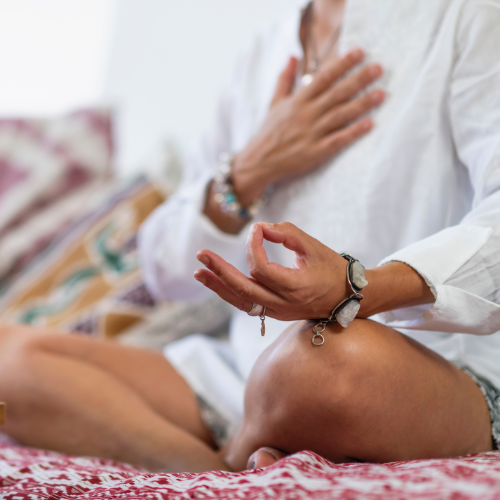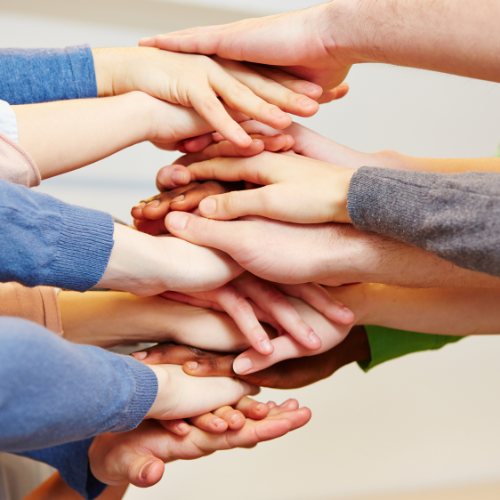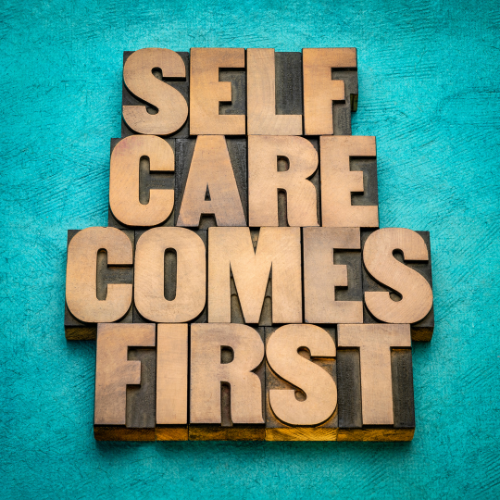Domestic violence leaves deep scars, not only on the body but also on the mind. For many survivors, the trauma of abuse triggers a complex web of mental health challenges that can last long after the physical wounds heal. Anxiety, depression, post-traumatic stress disorder (PTSD), and other emotional struggles are common among those who have experienced domestic violence. Addressing these mental health concerns is crucial for survivors’ long-term healing and well-being.
In this article, we explore the intersection of domestic violence and mental health, examining how abuse impacts emotional well-being and how survivors can find holistic support that addresses both the psychological and physical aspects of their recovery. Whether through therapy, community resources, or self-care practices, it’s essential that survivors receive comprehensive care to fully heal.
The Link Between Domestic Violence and Mental Health
Domestic violence impacts nearly every aspect of a survivor’s life, and the psychological consequences can be just as severe, if not more so, than the physical harm. Survivors often carry the emotional weight of their experiences, grappling with feelings of fear, guilt, shame, and low self-esteem. The impact on mental health can be profound and long-lasting.
Common Mental Health Issues Faced by Survivors
- Anxiety: Survivors of domestic violence often develop anxiety disorders as a result of the constant fear and stress they endured. Even after escaping the abusive environment, they may experience ongoing worry, panic attacks, or hypervigilance.
- Depression: Depression is another common outcome of abuse. The sense of isolation, worthlessness, and hopelessness that many survivors feel can lead to prolonged periods of sadness, difficulty enjoying life, and withdrawal from social interactions.
- Post-Traumatic Stress Disorder (PTSD): PTSD is a frequent consequence of experiencing or witnessing traumatic events, such as domestic violence. Symptoms of PTSD can include flashbacks, nightmares, intrusive thoughts, and emotional numbness. PTSD can make it difficult for survivors to feel safe, even in supportive environments.
- Substance Abuse: Some survivors turn to drugs or alcohol as a way of coping with the overwhelming emotions that follow abuse. While this may provide temporary relief, it often exacerbates mental health challenges in the long term.
- Low Self-Esteem and Guilt: Abusers frequently manipulate their victims into believing they are to blame for the violence. This emotional manipulation can result in deep-seated feelings of guilt and a severely diminished sense of self-worth.
Holistic Support: A Path to Healing
Holistic support focuses on healing the whole person—mind, body, and spirit. For survivors of domestic violence, a holistic approach addresses both the emotional and physical impacts of abuse, offering comprehensive care that promotes long-term recovery and well-being.
What is Holistic Support?
Holistic support includes a range of healing modalities that go beyond traditional therapy. While counselling and therapy are critical components of recovery, holistic support also incorporates practices such as mindfulness, meditation, physical activity, creative expression, and community involvement. The goal is to address all aspects of a survivor’s well-being, fostering healing at multiple levels.
Why Survivors Need Holistic Support
Survivors of domestic violence often face multifaceted challenges that require a broad range of interventions. Holistic support recognizes that healing isn’t just about addressing trauma from one angle. Instead, it focuses on integrating emotional, psychological, physical, and even spiritual healing practices to promote overall wellness.
By addressing a survivor’s full range of needs—emotional, mental, physical, and social—holistic support can lead to deeper, more lasting recovery.
Strategies for Holistic Mental Health Support

Professional Therapy and Counselling

Professional therapy is essential in helping survivors process their experiences and begin the path to emotional healing. Trauma-informed therapists specialize in addressing the effects of abuse and helping survivors regain control over their lives.
Key Therapeutic Approaches:
– Cognitive Behavioural Therapy (CBT): CBT helps survivors reframe negative thoughts and beliefs, replacing self-blame and guilt with healthier, more realistic perspectives.
– Eye Movement Desensitization and Reprocessing (EMDR): EMDR is effective in helping survivors process traumatic memories and alleviate PTSD symptoms.
– Dialectical Behavioural Therapy (DBT): DBT teaches survivors emotional regulation, mindfulness, and distress tolerance—skills that are particularly helpful in managing overwhelming emotions.
Mindfulness and Meditation

Mindfulness practices can help survivors stay grounded in the present moment and reduce anxiety. Meditation, deep breathing exercises, and mindful movement (such as yoga) can promote a sense of calm and help survivors reconnect with their bodies after trauma.
Benefits of Mindfulness for Survivors:
– Reduces symptoms of anxiety and PTSD.
– Helps survivors manage stress and overwhelming emotions.
– Improves focus and concentration, allowing survivors to better cope with daily challenges.
Physical Activity and Movement

Exercise is not only beneficial for physical health but also has a profound impact on mental health. Regular physical activity releases endorphins, the body’s natural “feel-good” chemicals, which can help reduce symptoms of depression and anxiety. Survivors can benefit from activities like walking, yoga, swimming, or dancing—whatever feels most comfortable and enjoyable.
How Movement Helps:
– Boosts mood and increases energy levels.
– Provides a healthy outlet for releasing stress and tension.
– Encourages survivors to reconnect with their bodies in a positive way.
Creative Expression

Creative outlets such as art, writing, music, and dance offer survivors a way to process their emotions without relying solely on words. Creative expression can be therapeutic, allowing survivors to release emotions, explore their feelings, and express themselves in ways that might be difficult through traditional communication.
Creative Practices for Healing:
– Journaling: Writing about one’s experiences and emotions can be cathartic and provide clarity.
– Art Therapy: Painting, drawing, or sculpting can help survivors express feelings that are too painful or complex to articulate verbally.
– Music Therapy: Music can be a powerful tool for emotional expression and healing.
Building a Support Network

Community support is vital to a survivor’s healing journey. Friends, family, and support groups can provide emotional encouragement, practical assistance, and a sense of belonging. Being part of a supportive network helps survivors feel understood and less isolated.
Building Support:
– Survivor Support Groups: These groups offer a safe space for survivors to share their stories, connect with others who have had similar experiences, and offer mutual support.
– Counselling Hotlines: Survivors can access confidential support and guidance through domestic violence hotlines, which often provide resources, referrals, and immediate emotional support.
– Trusted Friends and Family: Rebuilding trust with loved ones and fostering positive, supportive relationships can create a safety net for survivors as they heal.
Trauma-Informed Self-Care

Survivors of domestic violence should prioritize self-care as a means of supporting their mental and emotional well-being. This includes setting boundaries, practicing relaxation techniques, and engaging in activities that promote joy, peace, and relaxation.
Self-Care Practices:
– Setting Boundaries: Survivors should establish clear boundaries in their personal and professional lives to protect their emotional energy.
– Restorative Activities: Activities such as reading, taking baths, spending time in nature, or enjoying hobbies can promote relaxation and mental restoration.
– Nurturing Relationships: Fostering positive, healthy relationships that are built on trust and mutual respect is key to long-term recovery.
FAQs
How does domestic violence affect mental health in the long term?
Domestic violence can have long-term mental health effects, including anxiety, depression, PTSD, and low self-esteem. Survivors may also experience difficulty trusting others and forming healthy relationships. Addressing these mental health concerns is essential for long-term recovery.
What are holistic support strategies for domestic violence survivors?
Holistic support strategies include therapy, mindfulness practices, physical activity, creative expression, and building a strong support network. These strategies aim to address the emotional, mental, and physical aspects of healing.
How can mindfulness help survivors of domestic violence?
Mindfulness practices help survivors manage stress, reduce anxiety, and reconnect with their bodies after trauma. Techniques like meditation, deep breathing, and yoga promote relaxation and emotional well-being, making it easier for survivors to process their experiences and heal.

The intersection of domestic violence and mental health presents significant challenges for survivors, but healing is possible with the right support. By adopting holistic strategies that address the emotional, psychological, and physical impacts of abuse, survivors can find a path toward recovery and long-term well-being.
At Healing Through Love, we are committed to providing the resources and support that survivors need to heal from trauma and rebuild their lives. Whether through therapy, community involvement, or self-care, survivors can find the strength to overcome the effects of abuse and live empowered, healthy lives.
Holistic support is key to breaking the cycle of domestic violence and ensuring that survivors receive the comprehensive care they deserve. Together, we can create a world where survivors are supported, respected, and empowered to thrive.



